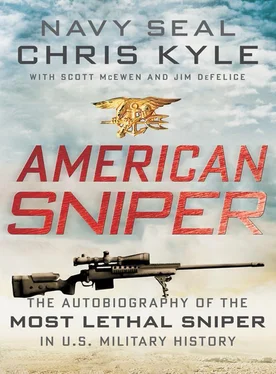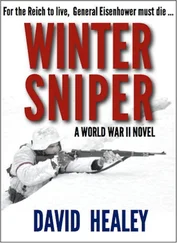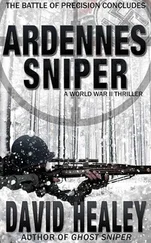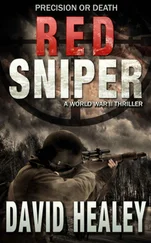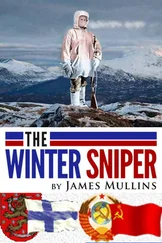The only thing in my package was my service record. But that had not been updated since I graduated BUD/S. My Silver Stars and Bronze Medals weren’t even in there.
I wasn’t crazy about becoming a chief. I was happy where I was. As chief, I would have all sorts of administrative duties, and I wouldn’t get as much action. Yes, it was more money for our family, but I wasn’t thinking about that.
Chief Primo was on the review board back at our base in the States. He was sitting next to one of the chiefs when they began reviewing my case.
“Who the hell is this dipshit?” said the other chief when he saw my thin folder. “Who does he think he is?”
“Why don’t you and I go to lunch?” said Primo.
He agreed. The other chief came back with a different attitude.
“You owe me a Subway sandwich, fucker,” Primo told me when I saw him later on. Then he told me the story.
I owe him all that and more. The promotion came through, and, to be honest, being chief wasn’t near as bad as I thought it would be.
Truth is, I never cared all that much about rank. I never tried to be one of the highest-ranking guys. Or even, back in high school, to be one of the students with the highest average.
I’d do my homework in the truck in the morning. When they stuck me in the Honor Society, I made sure my grades dipped just enough the next semester to get kicked out. Then I brought them up again so my parents wouldn’t get on me.
Maybe the rank thing had to do with the fact that I preferred being a leader on the ground, rather than an administrator in a back room. I didn’t want to have to sit at a computer, plan everything, then tell everyone about it. I wanted to do my thing, which was being a sniper—get into combat, kill the enemy. I wanted to be the best at what I wanted to do.
I think a lot of people had trouble with that attitude. They naturally thought that anyone who was good should have a very high rank. I guess I’d seen enough people with high rank who weren’t good not to be swayed.
Willie Nelson cranked through the speaker system of our Hummer as we set out for our base the next day. Music was about the only diversion we had out here, outside of the occasional stop in a village to talk to the locals. Besides the old-school country my buddy behind the wheel preferred, I listened to a bit of Toby Keith and Slipknot, country and heavy metal vying for attention.
I’m a big believer in the psychological impact of music. I’ve seen it work on the battlefield. If you’re going into combat, you want to be pumped up. You don’t want to be stupid crazy, but you do want to be psyched. Music can help take the fear away. We’d listen to Papa Roach, Dope, Drowning Pool—anything that amped us up. (They’re all in heavy rotation on my workout mix now.)
But nothing could amp me up on the way back to base. It was a long, hot ride. Even though I’d just gotten some good news about my promotion, I was in a dark mood, bored on the one hand, and tense on the other.
Back at base, things were incredibly slow. Nothing was going on. And it started to get to me.
As long as I had been in action, the idea of my being vulnerable, being mortal, had been something I could push away. There was too much going on to worry about it. Or rather, I had so much else to do, I didn’t really focus on it.
But now, it was practically all I could think of.
I had time to relax, but I couldn’t. Instead, I’d lie on my bed thinking about everything I’d been through—getting shot especially.
I relived the gunshot every time I lay down to rest. My heart thumped hard in my chest, probably a lot harder than it had that night in Sadr City.
Things seemed to go downhill in the few days after we got back from our border patrol. I couldn’t sleep. I felt very jumpy. Extremely jumpy. And my blood pressure shot up again, even higher than before.
I felt like I was going to explode.
Physically, I was beat up. Four long combat deployments had taken their toll. My knees felt better, but my back hurt, my ankle hurt, my hearing was screwed up. My ears rang. My neck had been injured, my ribs cracked. My fingers and knuckles had been broken. I had floaters and decreased vision in my right eye. There were dozens of deep bruises and an assortment of aches and pains. I was a doctor’s wet dream.
But the thing that really bothered me was my blood pressure. I sweated buckets and my hands would even shake. My face, pretty white to begin with, became pale.
The more I tried to relax, the worse things got. It was as if my body had started to vibrate, and thinking about it only made it buzz more.
Imagine climbing a tall ladder out over a river, a thousand miles up, and there you’re struck by lightning. Your body becomes electric, but you’re still alive. In fact, you’re not only aware of everything that’s happening, but you know you can deal with it. You know what you have to do to get down.
So you do. You climb down. But when you’re back on the ground, the electricity won’t go away. You try to find a way to discharge the electricity, to ground yourself, but you can’t find the damn lightning rod to take the electricity away.
Unable to eat or sleep, I finally went to the docs and told them to check me out. They took a look at me, and asked if I wanted medication.
Not really, I told them. But I did take the meds.
They also suggested that, since the mission tempo was practically nonexistent and we were only a few weeks from going home anyway, it made sense for me to go home.
Not knowing what else to do, I agreed.
It was late August when I left. As usual, it was almost surreal—one day I was in the war; the next I was home. I felt bad about leaving. I didn’t want to tell anyone about the blood pressure, or anything else. I kept it to myself as best I could.
To be honest, it felt a little like I was ducking out on my boys, running away because my heart was pounding funny or whatever the hell it was doing.
Nothing that I had accomplished earlier could erase the feeling that I was letting my boys down.
I know it doesn’t make sense. I know I had accomplished a huge amount. I needed a rest, but felt I shouldn’t take one. I thought I should be stronger than was possible.
To top things off, some of the medication apparently didn’t agree with me. Trying to help me sleep, a doctor back home in San Diego prescribed a sleeping pill. It put me out—so much so that when I really woke up I was on base with no recollection of working out at home and driving myself to base. Taya told me about my workout and I knew I had driven to work, because my truck was there.
I never took that one again. It was nasty.
Taya:
It’s taken me years to get my head around some of this stuff. On the surface, Chris wants to just go and have a good time. When people really need him though—when lives are on the line—he is the most dependable guy. He’s got a situational sense of responsibility and caring.
I saw this in his promotions in the military: he didn’t care. He didn’t want the responsibility of the higher rank, even though it would mean providing better for his family. And yet if a job needed to be done, he was there. He will always rise to the challenge. And he’s prepared, because he’s been thinking about it.
It was a real dichotomy, and I don’t think a lot of people understood it. It was even hard for me to reconcile at times.
Читать дальше
